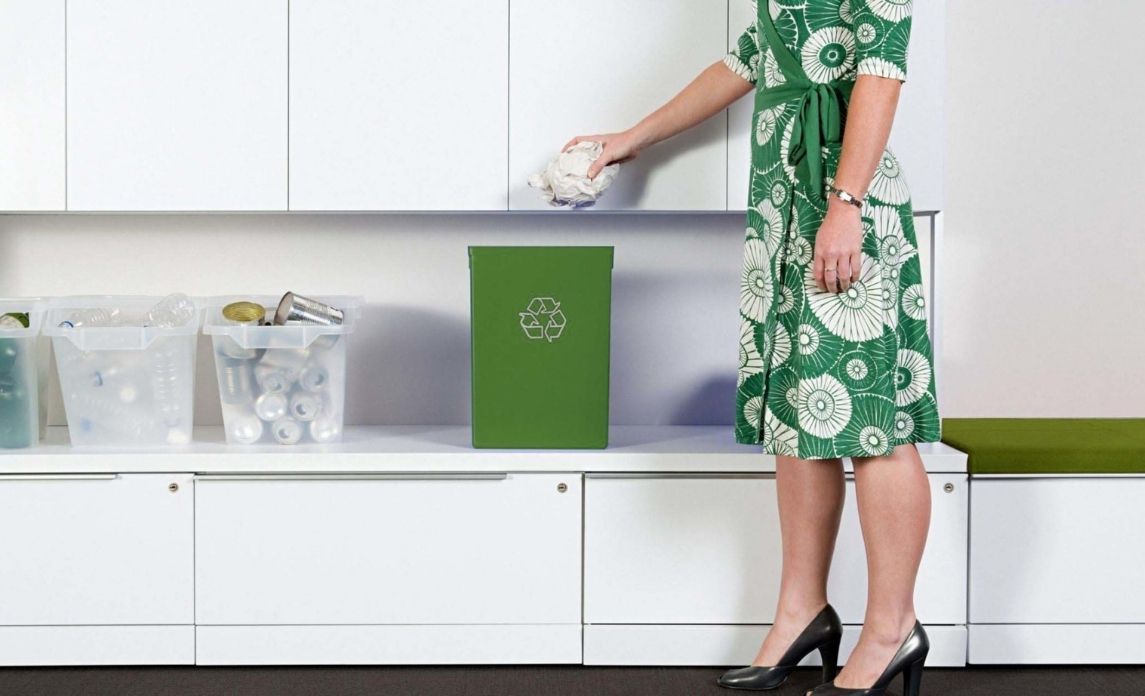When you think of the term “recycle” or “recyclable,” you would probably immediately imagine newspapers, plastic and bottles, tin cans, and cardboard boxes. You wouldn’t be wrong, of course, but these items aren’t the only things you can recycle. Indeed, thanks to the rapid evolution of technology, some things that were previously unrecyclable can now be reclaimed and reused. In the future, more things can be made recyclable.
You may even be surprised at the number of things in your office that can be recycled. The next time you call your trusted commercial cleaning company, let them know that you want the items in the list below recycled. The crew will likely already know and sort the items accordingly, but it also pays to give them a reminder. It’s also a good idea to inform everyone in your office that these things can be recycled. This way, if your employees can’t dispose of these items, they know that they can bring the items in for proper disposal.
E-Waste
Offices purchase a lot of electronic equipment and gadgets, such as printers, telephones, computers, and laptops. When these electronics are broken beyond repair or are due for replacements (such as laptop upgrades, for example), the old items often end up in landfills as e-waste. The problem is that, left unmanaged, e-waste can damage not just the environment but also human health.
Luckily, e-waste can now be recycled. In particular, certain parts can be gathered from old electronics such as ferrous metals and plastics. Circuit boards also contain various precious metals like gold and silver, as well as palladium and platinum. Make sure to get in touch with local recycling companies to confirm which kinds of e-waste they can process. A cleaning company can also help you figure out the next steps in recycling e-waste.
CDs
Compact discs or CDs were invented in 1982 and were among the most popular forms of data storage until the early 2010’s. CDs are still in use nowadays, especially in the video game industry; for the most part, however, most media are now stored either in the cloud or in thumb drives. So what do you do with all your CDs and DVDs? You can recycle them! The process is a little complicated, so make sure to bring them to recyclers with the right equipment. The parts that can be salvaged can be used for manufacturing other kinds of electronics.
Batteries
Most types of batteries can be recycled, including the standard rechargeable and single-use alkaline cell batteries (although they are more difficult to recycle). Do note that some batteries are easier to recycle, such as the lead-acid ones used for automobiles and button cells. Other kinds of batteries that can be recycled include lithium-ion (Li-ion), nickel-cadmium (Ni-Cd), and nickel metal hydride (Ni-MH). Much like e-waste, make it a point to ask your local recycler for disposal guidelines.
Ink Cartridges
If your office prints a lot of documents, you probably go through several ink cartridges every few months. Don’t throw these cartridges away, though. You can have them picked up and recycled instead. Indeed, there are many office supply companies that offer discounts and other benefits if you bring in ink cartridges to them for proper recycling.
Shredded Paper
It’s common knowledge that you can recycle different kinds of paper. However, what you may not know is that you can also recycle shredded paper. Do note that shredded paper is considered as mixed paper, so make sure to separate them from office paper, newspaper, and cardboards. After proper processing, shredded papers can be converted into egg cartons, coffee filters, and other products that utilise paper with smaller fibres.
Fluorescent Lights
The proper recycling of fluorescent light bulbs prevents their mercury content from contaminating the soil and groundwater sources. The good news? It’s rather easy to find a recycling centre that can handle the recycling of these bulbs for you. Most facilities prefer the compact versions (CFLs), but you can also send an enquiry if they are willing to take old tube lights. IKEA is also well-known for its active efforts in collecting fluorescent bulbs for recycling.
Packaging Materials
Packaging materials are necessary to prevent items from getting damaged during shipping. The problem is that these materials add up to millions of tonnes of waste each year. Don’t be an irresponsible shopper! Send your packaging materials to the correct recycling facility. It doesn’t matter if it’s bubble wrap, styrofoam, paper, or foam. Just make sure that you send them to the recyclers to be handled the right way.
Carpeting
Did you know that carpet can be recycled? That’s right! There are reclamations facilities that take old carpets for recycling. The process can be a little tough, especially those made from different materials, but it’s not entirely impossible. Nylon carpets are among the most recyclable, along with those made from natural fibres. You may also get in touch with the manufacturer of your carpets and verify if they have recycling programs.
Experts predict that the global waste problem will outpace the growth of the global population by 2050. This is an alarming statistic indeed, but the good thing is that there are many steps we can take to help solve the issue. Recycling is one of them. Indeed, when done properly, recycling can reduce the waste that goes into landfills every year. Take note of the above-listed items to make sure that you send them to the correct facilities.


